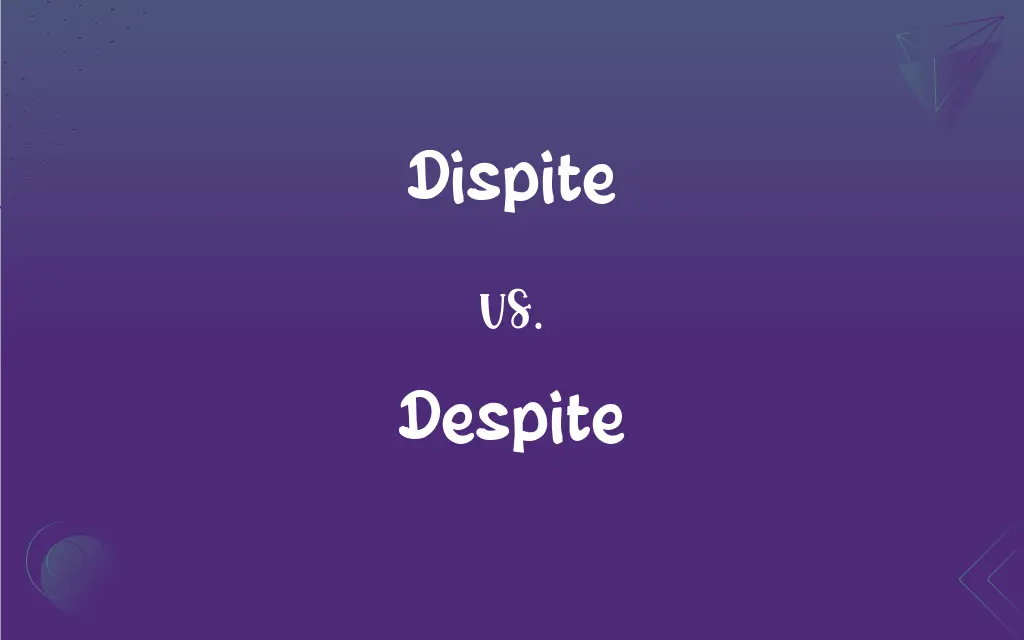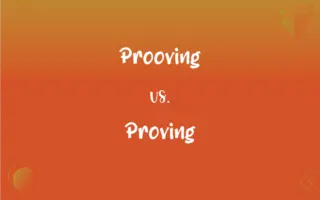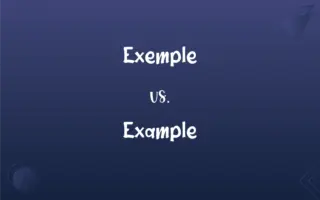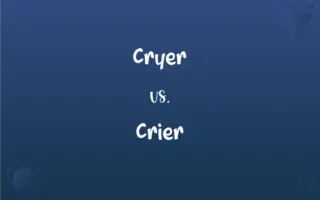Dispite vs. Despite: Mastering the Correct Spelling
Edited by Aimie Carlson || By Janet White || Published on June 16, 2024
"Dispite" is an incorrect spelling. The correct form is "despite," which means "in spite of" or "without being affected by."

Which is correct: Dispite or Despite
How to spell Despite?

Dispite is Incorrect

Despite is Correct
ADVERTISEMENT
Key Differences
Connect "despite" with "spite" to recall the 'e' at the beginning.
'E' comes before 'I' in the alphabet, as in the correct "despite."
Remember, "Despite is right, dispite is a plight."
Visualize the word "despite" with an emphasized 'E' at the beginning.
"In spite of the height, the spelling is despite."
ADVERTISEMENT
Correct usage of Despite
Despite the rain, the picnic went ahead.
They remained friends dispite their differences.
They remained friends despite their differences.
The festival was successful dispite the challenges.
The festival was successful despite the challenges.
She smiled dispite her pain.
She smiled despite her pain.
Despite his efforts, he failed the test.
Despite Definitions
Indicating the persistence of an action or state in spite of difficulty.
She smiled despite the pain.
Referring to an attitude of indifference.
She remained calm despite the chaos around her.
Showing disregard or defiance toward.
He continued his work, despite the noise.
Used to emphasize contrast.
Despite his fears, he spoke confidently.
Signifying persistence without being affected by any hindrance.
Despite the delay, the project was successful.
In spite of; notwithstanding
Won the game despite overwhelming odds.
Contemptuous defiance or disregard.
Spite; malice
"He died soon after ... of pure despite and vexation" (Sir Walter Scott).
Despite Sentences
Despite the cold weather, they decided to go hiking.
She enjoyed the trip despite getting lost.
He managed to laugh despite his situation.
Despite her fears, she performed brilliantly on stage.
Despite the heavy traffic, we arrived on time.
The team won despite being short-handed.
He's very friendly despite his serious appearance.
Despite the risks, the explorers pushed forward.
Despite his age, he's still very active.
Despite her busy schedule, she makes time for her family.
She received a warm welcome despite being a stranger.
Despite the language barrier, they became friends.
She kept her promise despite the difficulties.
They were happy despite the simple living conditions.
Despite the criticism, she continued her work.
Despite the long journey, they felt energized.
Despite the warning, he went out in the storm.
The garden looks beautiful despite the recent storms.
Despite the pain, he kept moving.
Despite the noise, she could hear the soft music playing.
The movie was enjoyable despite its flaws.
He offered help despite his own needs.
The event was a success despite the lack of funding.
He finished the race despite his injury.
Despite the changes, the tradition continues.
Despite Idioms & Phrases
Despite oneself
Acting against or without regard for one's own inclination or intention.
He found himself enjoying the concert despite himself.
FAQs
What is the pronunciation of despite?
Despite is pronounced as /dɪˈspaɪt/.
What is the plural form of despite?
Despite does not have a plural form; it's used the same way regardless of number.
Which preposition is used with despite?
Despite itself is a preposition and is not typically accompanied by another preposition.
What is the verb form of despite?
Despite does not have a verb form; it's only used as a preposition.
Which vowel is used before despite?
Typically, no specific vowel is used before "despite"; it stands alone as a preposition.
Which article is used with despite?
No article is used with "despite"; it's used independently.
What is the singular form of despite?
Despite is both singular and plural; it does not change form.
Is despite a negative or positive word?
Despite is neutral but often used in contexts of adversity or contrast.
Why is it called despite?
Despite is called so due to its derivation from the Old French word "despit," meaning contempt or scorn.
What is the root word of despite?
The root of "despite" is the Latin word "despectus," meaning a looking down on or contempt.
Which conjunction is used with despite?
Despite can be used with conjunctions like "and" or "but" for contrast or addition.
Is despite a noun or adjective?
Despite is a preposition, not a noun or adjective.
Is despite a countable noun?
No, despite is not a noun; it's a preposition.
Is the despite term a metaphor?
Despite is not typically used as a metaphor; it's a preposition indicating contrast.
What is another term for despite?
Another term for "despite" is "in spite of."
What is the third form of despite?
Despite does not have forms; it's always "despite."
Is despite a vowel or consonant?
Despite is a word, not a vowel or consonant.
Is despite a collective noun?
No, despite is not a noun; it's a preposition.
What part of speech is despite?
Despite is a preposition.
What is the opposite of despite?
The opposite of "despite" could be "because of" or "due to."
What is the first form of despite?
Despite does not have forms; it's always "despite."
What is the second form of despite?
Despite does not have forms; it's always "despite."
Is despite an adverb?
No, despite is not an adverb; it's a preposition.
Is despite an abstract noun?
No, despite is not a noun; it's a preposition.
Is the word despite imperative?
No, despite is not imperative; it doesn't express a command.
How many syllables are in despite?
There are two syllables in "despite."
How is despite used in a sentence?
Despite is used to show contrast, e.g., "Despite the rain, the game continued."
How do we divide despite into syllables?
Despite is divided as de-spite.
What is a stressed syllable in despite?
The stressed syllable in "despite" is the second syllable: -spite.
Which determiner is used with despite?
No determiner is typically used directly with "despite."
About Author
Written by
Janet WhiteJanet White has been an esteemed writer and blogger for Difference Wiki. Holding a Master's degree in Science and Medical Journalism from the prestigious Boston University, she has consistently demonstrated her expertise and passion for her field. When she's not immersed in her work, Janet relishes her time exercising, delving into a good book, and cherishing moments with friends and family.
Edited by
Aimie CarlsonAimie Carlson, holding a master's degree in English literature, is a fervent English language enthusiast. She lends her writing talents to Difference Wiki, a prominent website that specializes in comparisons, offering readers insightful analyses that both captivate and inform.
































































